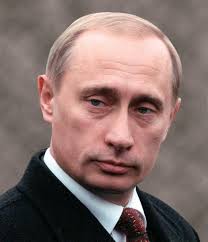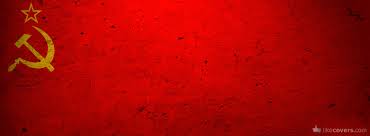

President Vladimir Putin described the Soviet Union as a land of opportunity and called for two Soviet relics, mandatory school uniforms and the "Hero of Labor" award, to be dusted off in the name of social justice, during an informal meeting with supporters in Rostov-on-Don on Friday.

The Soviet government provided Putin with opportunities — a quality education, a KGB job abroad, and social mobility back home — without which he "wouldn't have had a chance" to rise to his current position, Putin said, adding that the feat would be "fairly difficult" today.
"We must again make education a quality means of social mobility for everybody," he told rank-and-file members of the All-Russia People's Front, an umbrella group of organizations that support him, including the ruling United Russia party and thousands of nongovernmental groups.
During the meeting, a meandering question-and-answer session, Putin also threw his support behind mandatory school uniforms — abolished in 1992 — which an educator from the Siberian city of Tyumen told him could promote social cohesion and guard children's health.
The federal government could require the uniforms and leave the details to the regions, Putin said.
At the suggestion of a wizened factory worker, Putin resurrected another Soviet icon, the Hero of Labor award, which was created in 1928, renamed the "Hero of Socialist Labor" in 1938, and discarded along with the Soviet Union in 1991.
"I don't only agree with you, I think that your proposal will be carried out by the end of the day today," Putin told the man, causing burly union leader Mikhail Shmakov to wrinkle his face in disbelief before breaking into a restrained smile.
Putin has said there's no going back to the Soviet Union, but he has frequently expressed nostalgia for its geopolitical muscle, including when he famously called its collapse "the greatest geopolitical catastrophe" of the 20th century.
On Friday, Putin also seemed to echo many Russians' belief that its social safety net and education system were stronger, too, and that the gap between the rich and poor was narrower.
He criticized income disparity and called for "reasonable limits" on so-called golden parachutes, occasionally lavish severance payments awarded to top executives.
A mining executive's $100 million golden parachute — the largest in Russian history — sparked outrage when it was announced in December, and the practice has been criticized by State Duma deputies and the Prosecutor General's Office.
The former executive, Norilsk Nickel's Vladimir Strzhalkovsky, a longtime Putin associate from his KGB years, promised to give 10 percent to the families of fallen security service officers.
Putin also listened to complaints about conditions for small businesses, specifically an increase in their obligatory payments to the pension fund.
As of this year, individual entrepreneurs have to pay 37,000 rubles ($1,200) per person into the fund, a dramatic increase over previous levels and a move that small business leaders say caused more than 350,000 people to cancel their registration as entrepreneurs.
Putin ordered the government to review the situation within two weeks and report their findings back to him.
He also tread carefully on the thorny issue of whether Russian schoolchildren should use the same history textbook, saying that there should be a "canonical version of our history" for the sake of national unity, but that teachers should also present their students with various points of view.
The atmosphere in the auditorium seemed relaxed, with Putin sitting on level with the audience and occasionally cracking jokes and more than once reminiscing about his time as a young KGB officer.
His most provocative barb came in response to a young teacher who said she overheard two pupils on a playground talking about plans to provide false witness against their parents.
"Eavesdropping is bad. I learned that during my time in the KGB, and I gave it up," said Putin, who served in the Soviet Union's main security agency from 1975 to 1991. Embarrassing recordings of telephone conversations between Kremlin critics have a way of appearing on the Internet.
The light tone almost masked the serious political work taking place.
With United Russia beset by scandals and slipping in the polls, rumors have abounded that the All-Russia People's Front will become the premier pro-Putin vehicle, perhaps even a replacement party.
The speculation appeared to get a boost when Putin urged members to officially register the hitherto informal group and hold a founding congress on June 11-12, which coincides with the Russia Day holiday.
Earlier, the people's front announced that Andrei Bocharyov, a decorated Chechen War veteran and former State Duma deputy, would lead preparations for the founding congress, which has involved the creation of regional organizing committees throughout the country.
Bocharyov said the group would make sure that orders issued at Friday's conference were carried out, including by checking with officials, RIA-Novosti reported.
In another sign of the group's growing clout, Just Russia leader Sergei Mironov said his party would not exclude working with the people's front on certain issues, according to an online statement published on Thursday.
The All-Russia People's Front was founded at Putin's initiative in 2011 and used to elect dozens of non-party, pro-government candidates to the State Duma in December of that year, and secure Putin's landslide election to his third presidential term in March 2012.
Even so, 57 percent of Russians have never heard of the organization, and 42 percent dismissed it as an "imitation" of widespread support for Putin, according to March polls by the independent Levada Center.


No comments:
Post a Comment